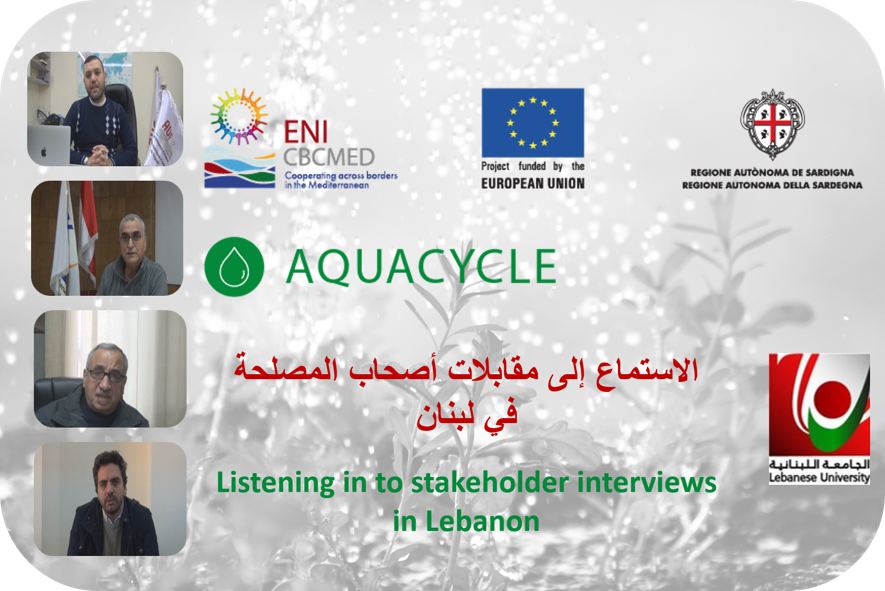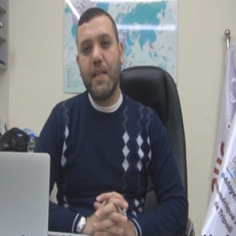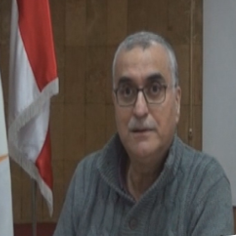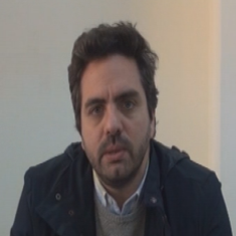AQUACYCLE - My Autobiography - Listening in to interviews with water stakeholders in Lebanon

Listening in to stakeholders’ needs and expectations in Lebanon's wastewater treatment sector brought into focus several stark realities on the ground and the real needs my creators will be expected to integrate into my physical design in the coming months.
I invite you to watch this short video clip, and to read the transcript of the interviews that were conducted by my promoters in Lebanon, Prof. Mohamad Khalil and Prof. Ahmad EL Moll from the Faculty of Engineering at the Lebanese University in Tripoli.

The reality of the water situation in Lebanon is very painful. Here in Lebanon, waste streams from sanitary facilities, laboratories and factories, go directly to the sea, without any treatment, and this hurts a lot.
Dr. Imad Kassaa further explains that aside from the microbial diseases this brings, there is a much greater problem with heavy metals and chemicals which go into the sea and we cannot get rid of. Animal health is in danger and even any water that is drunk in Lebanon may be contaminated with these substances, whose symptoms do not appear but later like in the form of cancerous and chronic diseases.
Prof. Monzer Hamze reiterates to having conducted studies over many years in the Akkar plain, which is one of the most important agricultural plains in Lebanon, from which he draws a sobering conclusion:

We can say that 100% of the water sources used in the irrigation process are highly bacterial contaminated.
Eng. Mohamed Nour Al-Ayoubi informs that the (sewerage) network in Lebanon is not accomplished yet, and is under (ongoing) construction.

Here in Tripoli we have on of the largest wastewater treatment stations in Lebanon but it is not working at full capacity because of the lack of connected (sewer) lines.
Eng. Hussam Hawa considers that the APOC technology aims to put development projects in the context of the circular economy, meaning that nothing is wasted, and (instead) waste becomes a resource.
We are very excited to engage in such a project especially since it looks at treatment in a decentralized way and we believe that this is the most appropriate solution for Lebanon as its societies are very small and spread throughout its territory. Unfortunately this sector (sanitation) is new to the Lebanon State which has been trying for a while to restructure the sector.

We are in urgent need of such projects and I hope that this project will succeed in scientific and technical terms and it will see the light until we enter the stage of solutions to the intractable problems in Lebanon.

These testimonies from stakeholders together with desk reviews of the national legislation in force, the country’s institutional and regulatory framework and of available reports and assessment studies, will form the basis for an in-depth analysis of the wastewater treatment and reuse governance framework in Lebanon.









